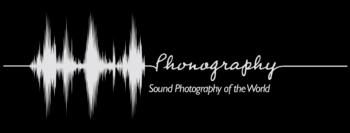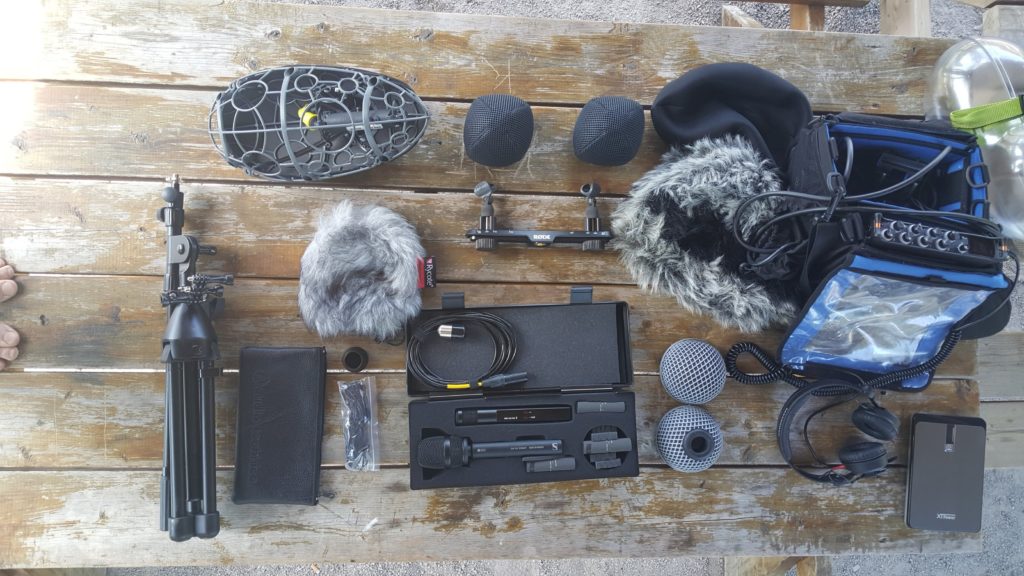 The question of microphones setup, haunted us from the beginning of this project …. for a budget, what microphones to take with us? what will be the right combination of microphones that will be as flexible as possible, but also meet all our criteria :
The question of microphones setup, haunted us from the beginning of this project …. for a budget, what microphones to take with us? what will be the right combination of microphones that will be as flexible as possible, but also meet all our criteria :
- Surround recording, quad (4.0), but also more classic surround (5.0)
- Stereo sound recording : ORTF, XY, AB
- Ambisonic sound recording, for VR and 360 ° videos
- Animals sound recording
- Underwater sound recording
- Electro-magnetic sound recording
- Contact microphone
but also more technical constraints:
- Low noise/signal ratio
- Robust and reliable microphones, weatherproof and wet climate ready
- Relatively small and compact microphones.
- Flexible configuration.
The constraints being asked, I will try to explain our choices for this project. To begin with, one of the decisive criteria was the good resistance of the microphones to bad weather and humidity, for that Sennheiser high-frequency microphones, with the MKH series, seemed a good starting point. These microphones have the reputation of not being sensitive to humidity, and reliable in the field. They are therefore used a lot in documentary shooting. In addition, Sennheiser’s reputation for reliability and quality seemed well established. Also wanting compact microphones, we went naturally on the MKH 8000 series. A match paired of MKH 8040, allow us to make good stereo recording in all situations (ORTF, XY, AB)
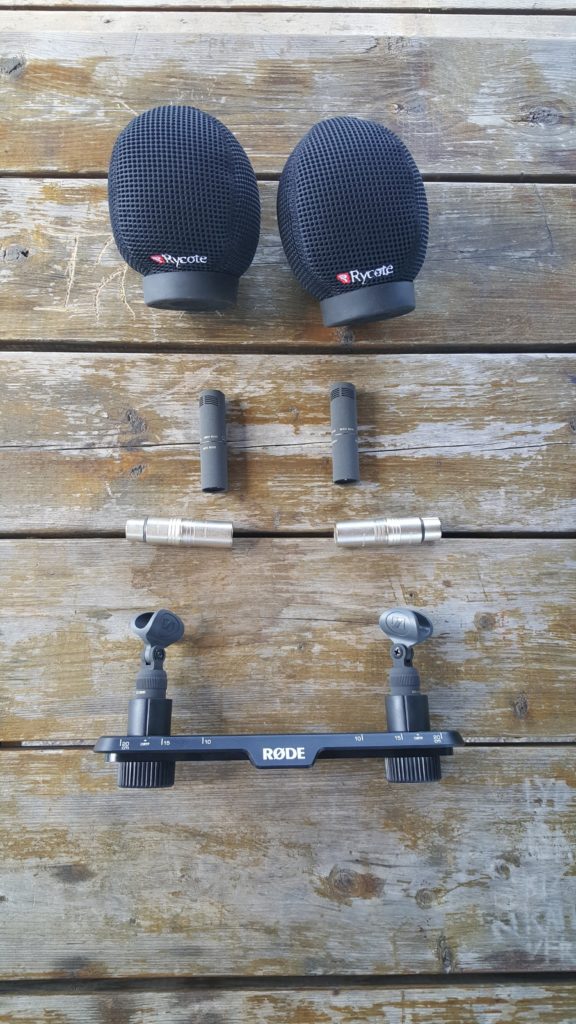
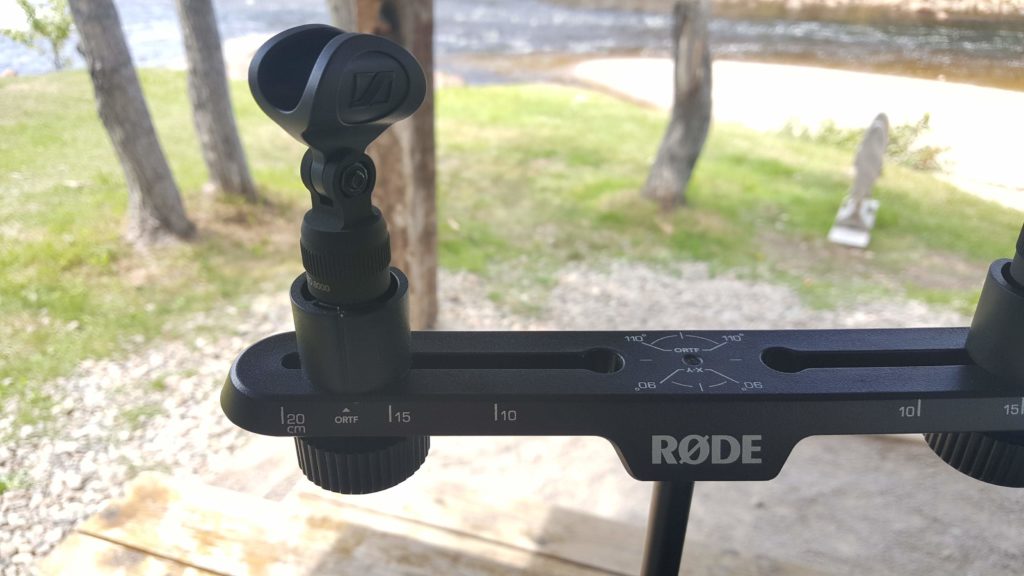
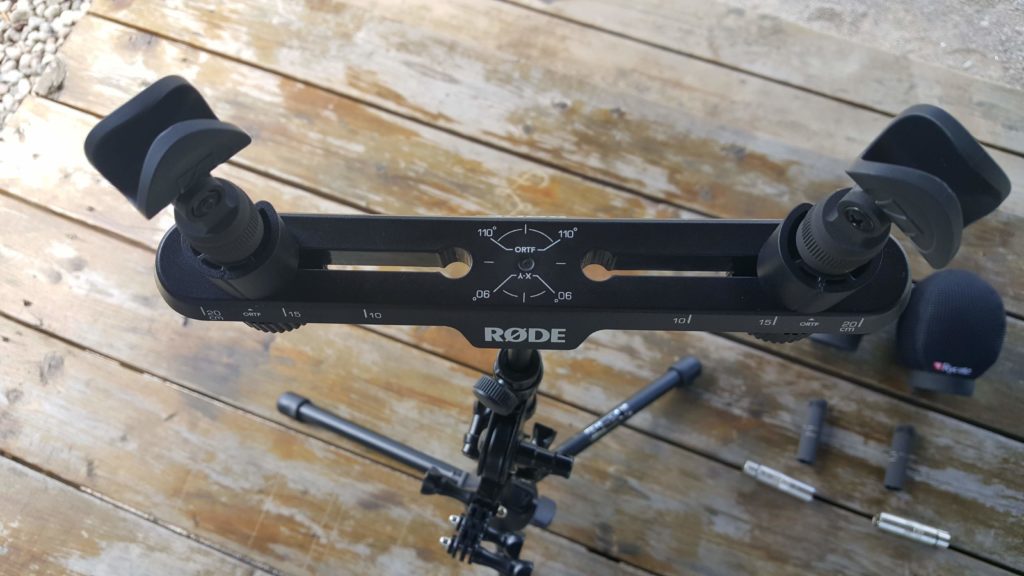
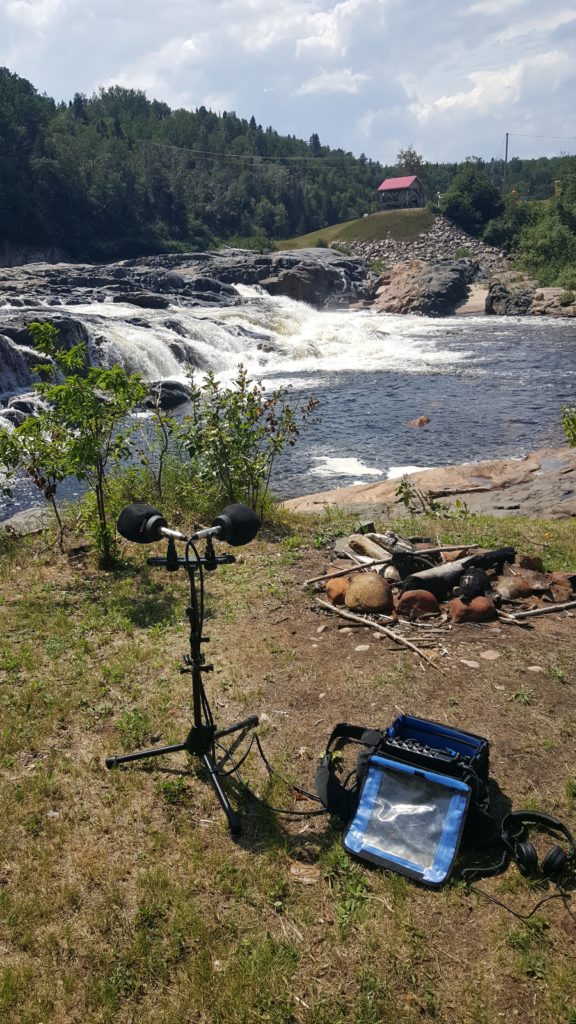 Then the question is asked for the surround (5.0), either to buy x3 mkh 8040, or to use a more economical and flexible technique, the double MS (DMS) by adding a figure 8 microphone, to the existing MKH 8040. This is the last solution we chose because it is more economical (reuse of the MKH8040) and more flexible, and very compact. So we naturally chose a Sennheiser MKH 30-P48, to stay in the same microphone coloration. The only regret is that this microphone is not really compact …. The DMS configuration is well known from Schoeps, with solutions of suspensions and protections against wind, but nothing planned for Sennheiser ….. Fortunately, we found our happiness at Cinela (http://www.cinela.fr/), manufacturing high-end suspension and wind protection that makes suspensions tailored to the needs of the customer. In addition Cinela is a French brand, established in Paris. Everything is provided in the kit to record in DMS, in all conditions:
Then the question is asked for the surround (5.0), either to buy x3 mkh 8040, or to use a more economical and flexible technique, the double MS (DMS) by adding a figure 8 microphone, to the existing MKH 8040. This is the last solution we chose because it is more economical (reuse of the MKH8040) and more flexible, and very compact. So we naturally chose a Sennheiser MKH 30-P48, to stay in the same microphone coloration. The only regret is that this microphone is not really compact …. The DMS configuration is well known from Schoeps, with solutions of suspensions and protections against wind, but nothing planned for Sennheiser ….. Fortunately, we found our happiness at Cinela (http://www.cinela.fr/), manufacturing high-end suspension and wind protection that makes suspensions tailored to the needs of the customer. In addition Cinela is a French brand, established in Paris. Everything is provided in the kit to record in DMS, in all conditions:
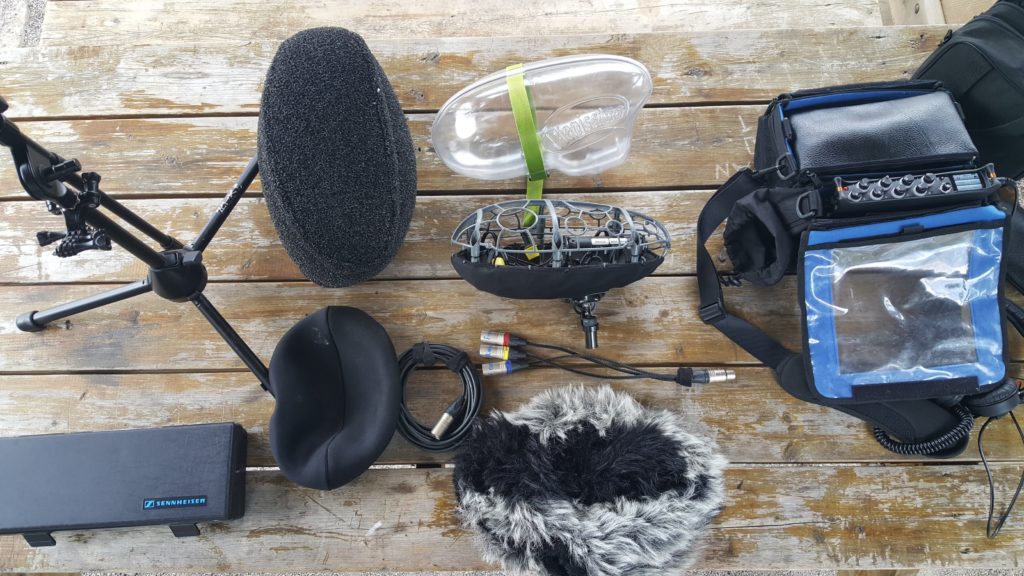 We still had to find a config for recording animal, or simply allowing to take sounds in a more distant way, to have more focus on sound. Ideally, we would take with us a shotgun microphone and a parabola, but the budget had to make us a difficult choice and we choose the parabola : a Telinga (http://www.telinga.com/) coupled with a omnidirectional MKH 8020 (Sennheiser).
We still had to find a config for recording animal, or simply allowing to take sounds in a more distant way, to have more focus on sound. Ideally, we would take with us a shotgun microphone and a parabola, but the budget had to make us a difficult choice and we choose the parabola : a Telinga (http://www.telinga.com/) coupled with a omnidirectional MKH 8020 (Sennheiser).
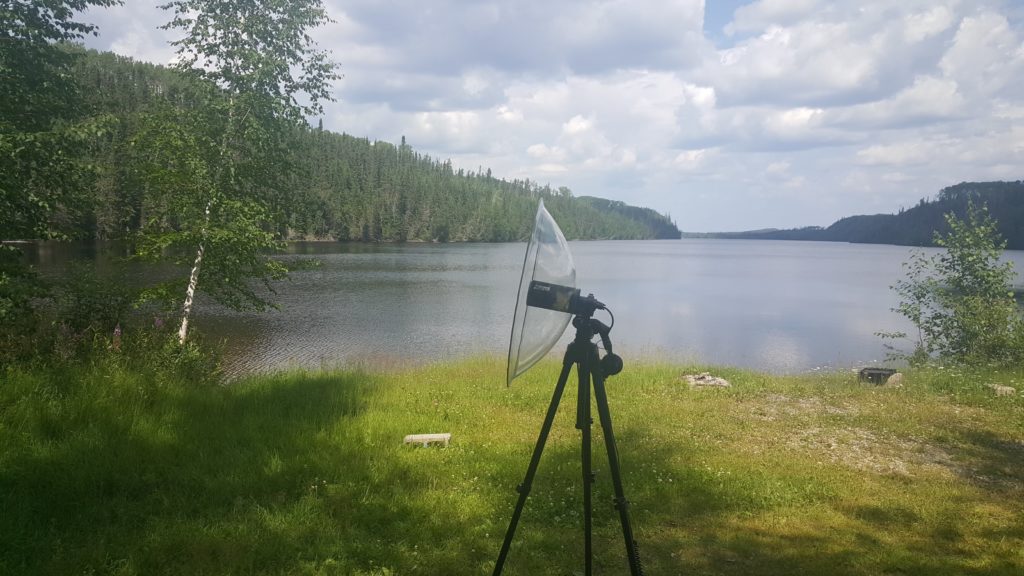
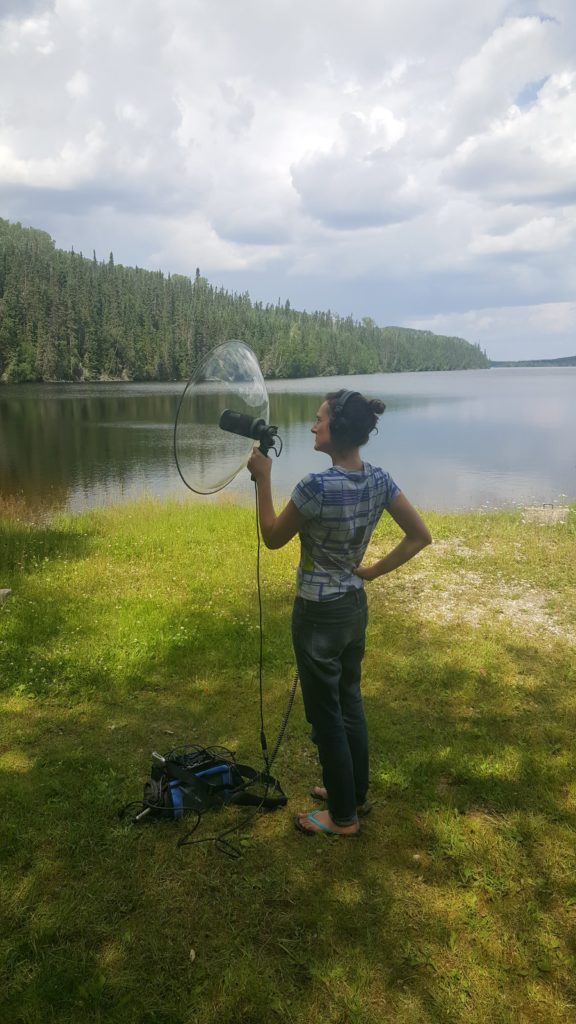 We also wanted an ambisonic microphone, to be able to record in B format, for virtual reality and 360 ° movies. At the time of departure and at an affordable price, there was only Sennheiser AMBEO on the market (Rode just released yet, an ambisonic mic, through the acquisition of Soundfield: http://fr.rode.com/nt-sf1 )
We also wanted an ambisonic microphone, to be able to record in B format, for virtual reality and 360 ° movies. At the time of departure and at an affordable price, there was only Sennheiser AMBEO on the market (Rode just released yet, an ambisonic mic, through the acquisition of Soundfield: http://fr.rode.com/nt-sf1 )
Sennheiser AMBEO, is the little microphone, on the right in the photo:
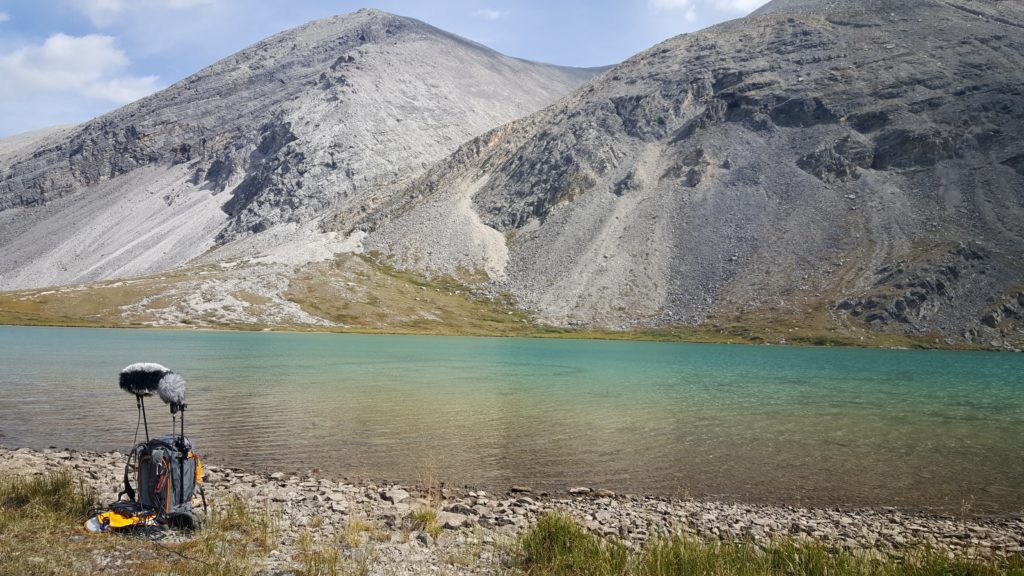 We completed the setup with Aquarian X2A-XLR hydrophone, which we already had, with the idea of recording marine mammals, but also the crackling of glaciers. In addition, this microphone also serves as a micro-contact. (http://www.aquarianaudio.com/h2a-xlr-hydrophone.html)
We completed the setup with Aquarian X2A-XLR hydrophone, which we already had, with the idea of recording marine mammals, but also the crackling of glaciers. In addition, this microphone also serves as a micro-contact. (http://www.aquarianaudio.com/h2a-xlr-hydrophone.html)
The hydrophone is at the top of the photo. (There is also a small microphone pickup at the bottom left, to record magnetic interference)
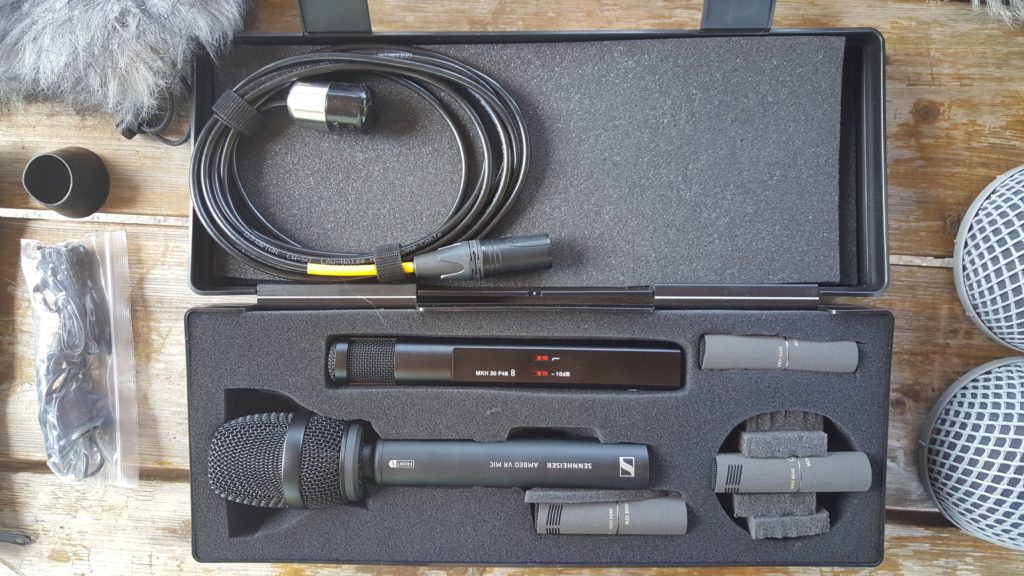 Here is our config, I hope it will allow us to respond to a maximum of situations, I will wrote in future articles, a description of each microphones, and their uses.
Here is our config, I hope it will allow us to respond to a maximum of situations, I will wrote in future articles, a description of each microphones, and their uses.
